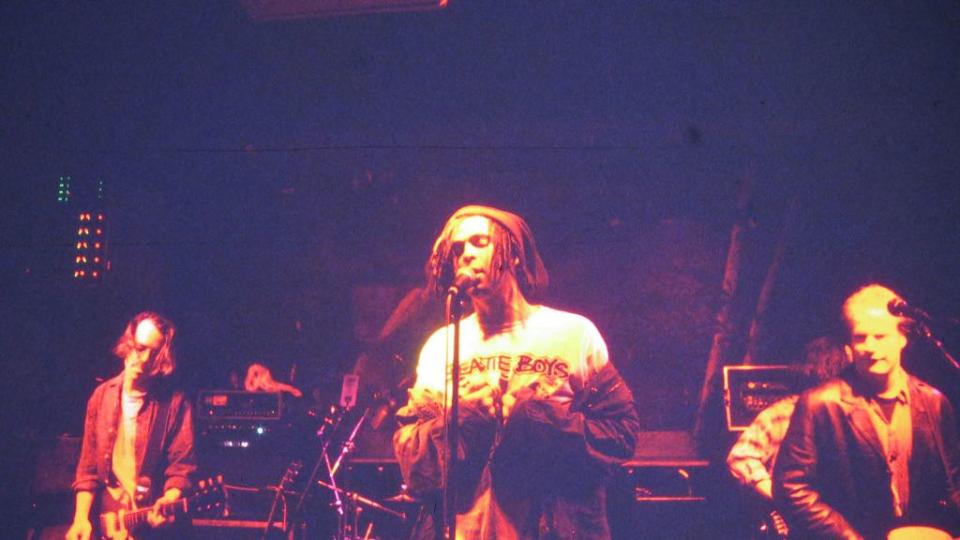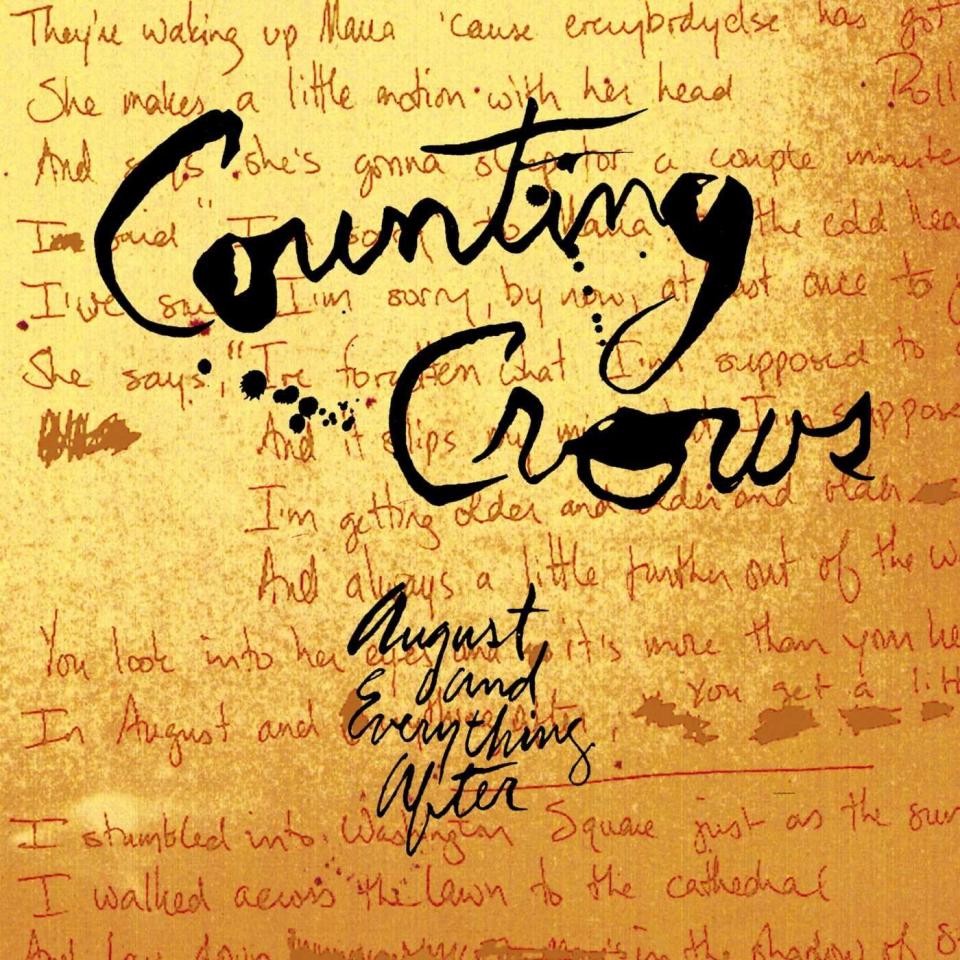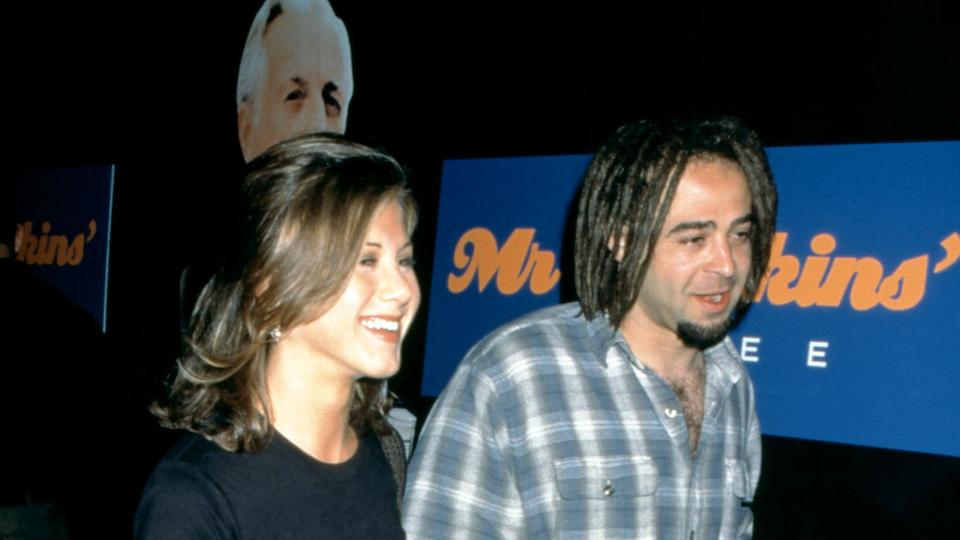What It Means for You and Me and Everyone That 'August and Everything After' is 30

- Oops!Something went wrong.Please try again later.
"Hearst Magazines and Yahoo may earn commission or revenue on some items through these links."
Counting Crows’ August and Everything After turned thirty this month, which feels wrong because I remember going to the Auburn Mall to pick up the CD like it was last week, even though things like “CDs” and “the Auburn Mall” have not been a part of anyone’s life for what feels like much longer than 30 years. August hitting the big 3-0 also feels absolutely right, because it always sounded like an album that was approaching middle age: still energetic, still eager, still hopeful, but getting comfortable in its more introspective and wistful moments. It was the sound of premature disillusionment. The young people of America bought seven million copies of a record that made absolutely none of them feel young.
The timing could not have been better. By 1992, Nirvana had fully vaporized the rules of what got played on mainstream rock radio, and nobody had yet written a new set of those rules, so just about anything got a shot at being the next big thing. Ministry? Morrissey? Cracker, Sugar, King Missile? Sure, run them up the flagpole. At the same time, REM followed up the album that minted them as a massive mainstream rock band—Out Of Time—with Automatic For The People, a hot bummer of an album about death and grief and skinny-dipping. If Out Of Time was spring and summer—which it is; you are forbidden to listen to it outside of those seasons—Automatic was autumn and winter. The perfect accessory for the shorter, colder days before we had pumpkin spice to do the job. It was a ruminative kind of record, inspired by the members of REM themselves turning thirty.

There’s a bit of REM’s jangle in Counting Crows, but there was a lot of The Band. Those early demos felt like what guys at record labels and radio stations understood as rock music, and if it got a bit jammy, or morose, or REMishly ruminative, hey, that’s what the kids seemed to like. So there was a record-label feeding frenzy, and Geffen snagged them, and they played the Rock & Roll Hall of Fame before they were even finished recording their debut album. The conclusion that they were going to blow up seemed foregone; the first time they played Letterman, you knew these guys would always play Letterman. And whether it was confidence or diffidence about becoming a famous rock band, they saved two of the catchiest numbers— “A Murder of One” and “Einstein on the Beach”—for a hidden track and DGC Rarities, respectively.

August And Everything After Vinyl
amazon.com
I had the great privilege of being an extremely moody senior in college when August and Everything After came out. I was unsure about the future, I had a Catholic’s talent for self-flagellation, all my life was just a shame shame shame and all my love was just a dream dream dream, so you could say the album clicked with me. I was about to enter the real world with very few life skills, and all I really knew for sure was that I wanted everybody to love me, because as we all know, that’s just about as funky as you can be. I spent a lot of nights with August in my headphones, lights off, Camel Light after Camel Light, not knowing exactly what Adam Duritz was saying, but feeling it precisely. August came with me the following May to New York City, to endless walks around the West Village, to the actual Sullivan Street, to any bar with a CD jukebox. To this day, if you were in your twenties in the 1990s, and you play “Rain King” loudly enough, a full pint of Budweiser will appear before you. Try it at home.
Friends premiered that September. I don’t need to tell you about Adam Duritz and the cast of Friends.

August and Everything After is a friend to the somber soul, but underneath all that mohair melancholy, there is a persistent hope. The record is good for a wallow, but when you come back around to "I've been here before and I deserve a little more" in "Rain King," it can give you a good and necessary kick in the ass if you let it. It did me.
Anyway, now it’s 2023, and it and they and you and I are old. It feels strange that August and Everything After is thirty, and it feels equally strange that it didn’t always exist. It’s a record that showed up sounding like you had already broken it in. It was beatnik poetry and tasteful little jams and pure wounded-guy emotion, and if it wallowed in its melancholy a little too much, that was okay because so did you. It was classic rock the moment it arrived, and it still is and it always will be.
It is good that Counting Crows are back making new music, and it is good that it is good, but it would be okay if they weren't or it weren’t, because we will always have August and Everything After. Autumn and winter need their soundtrack, too.
Read More Essential Dave Holmes:
You Might Also Like

